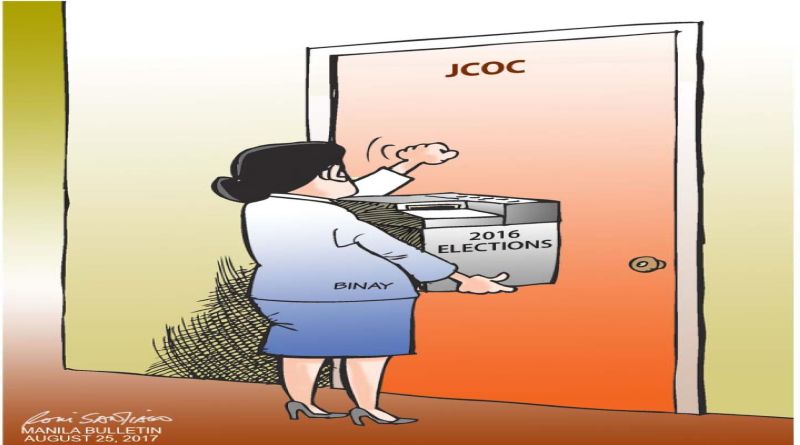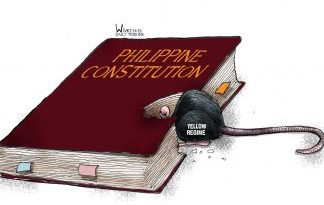Reviewing the conduct of the 2016 elections
Among the provisions of RA 9369, the Election Automation Law of 2006, is one calling for a Joint Congressional Oversight Committee (JCOC) to conduct a mandatory review of the performance of the Automatic Election System (AES) 12 months after the last election. The oversight committee is to submit its report and recommendations to the Senate and the House of Representatives.
It is now 15 months since the May, 2016, presidential elections but the Joint Oversight Committee has yet to convene, Sen. Nancy Binay said last week. That was the week Commission on Elections (Comelec) Chairman Andres Bautista found himself at the center of a controversy in which his wife accused him of amassing P1 billion in undeclared assets. The issue has died down somewhat in the wake of blanket denials from Chairman Bautista, but there are continuing questions about a possible link to the perennial charges of election irregularities.
Senator Binay called on the JCOC to convene, as mandated by RA 9369, and evaluate the performance of the automation technologies used in 2016, specifically the 93,000 Precinct Count Optical Scan (PCOS) Machines leased by Smartmatic to Comelec.
At the height of the transmission of election returns in 2016, she noted, Smartmatic and some Comelec officials made an unauthorized script change in the Transparency Server, purportedly to correct the spelling of a candidate’s name. Vice-presidential candidate Ferdinand “Bongbong” Marcos Jr. has charged that his votes started dwindling after this incident. He has since filed a protest against Vice President Leni Robredo with the Presidential Electoral College.
In her call for the convening of the JCOC, Senator Binay said it should include this incident in its investigation. She also called on the Comelec to suspend Smartmatic from taking part in the coming local elections in 2018.
The JOCO needs to meet, if only because it is so mandated by RA 9369. When it does meet and seeks to go to the bottom of the problems involving the Comelec and Smartmatic, it may find itself facing a very difficult task. For there is just no way automated election processes can be totally protected from computer experts. And there is no way to prove cheating in an automated election – unless a massive manual recount is undertaken.
This is why many countries in Europe led by Germany have gone back to manual voting and counting in their elections after the country’s Federal Constitutional Court ruled automated elections unconstitutional.
When it reviews the conduct of the 2016 Philippine elections, the JOCO should not shy away from looking into the basic idea of automated voting and transmission of results and their vulnerability to hacking interventions that would unduly affect the results of an election.









